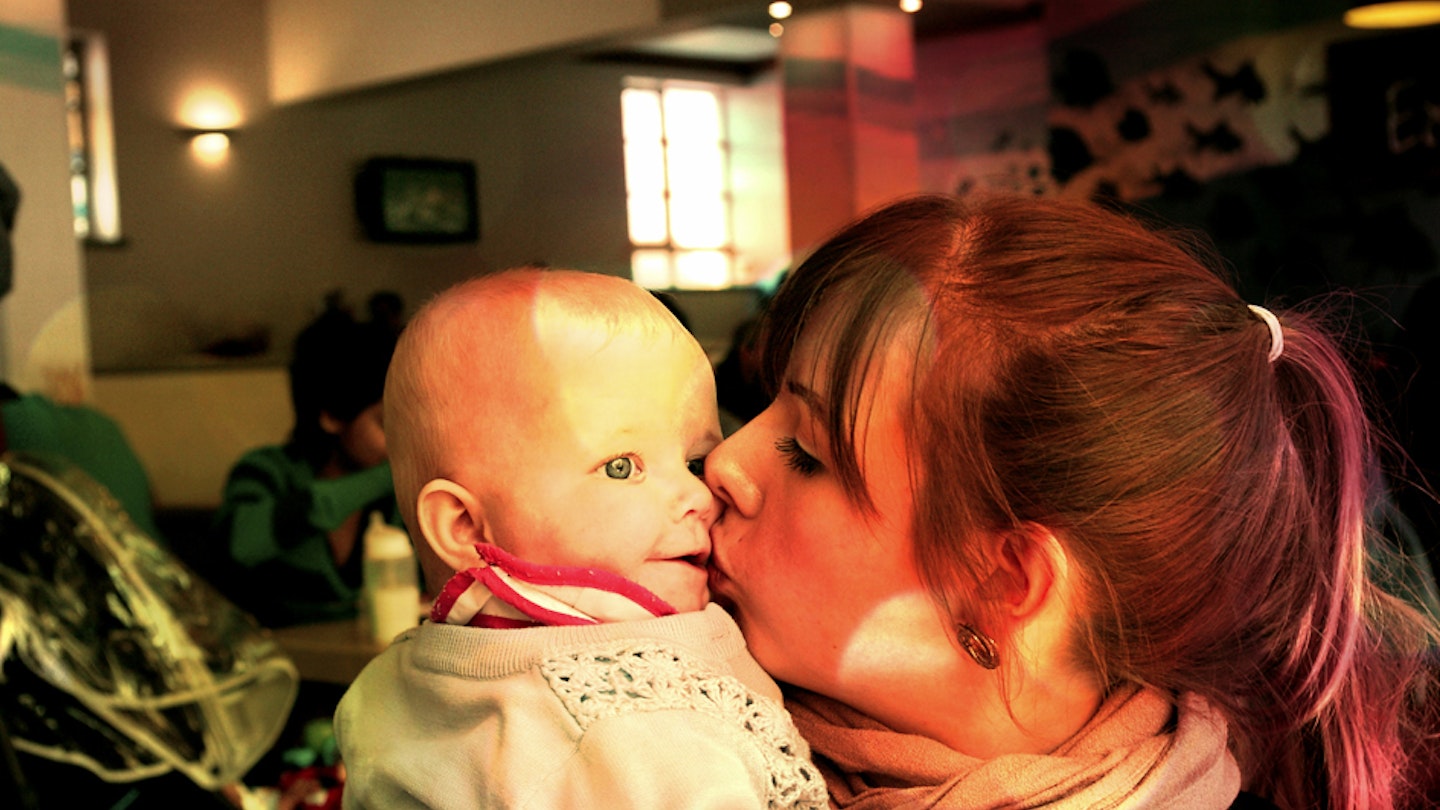Increasing numbers of women are sharing their stories on social media. Would you?
Kerry Dyer (above), 22, a part-time blogger, lives in Somerset with partner Warren, 25, a sales rep. She is mum to Sienna, 15 months
At four months pregnant, I saw something on Twitter inviting young pregnant women to apply for a TV documentary. I already posted video diaries on my blog livedwithlove.com, so I felt comfortable with the idea. When I got a call from the production team, I was so excited.
The programme for BBC3 was called We’re Having A Baby and involved Warren and I filming ourselves in the lead up to the birth, as well as during the labour. I was nervous about being portrayed in pain, but we were keen on having a record of how our baby was born.
'I was nervous about being portrayed in pain, but we were keen on having a record of how our baby was born'
When I felt my first contraction at 3am, the day after my due date, my instinct was to pick up the video camera, as I’d got so used to recording myself. I crept downstairs and, holding the camera in front of me, whispered to the screen, ‘I’m confused. I was expecting contractions in my bump, but the pain’s in my back.’
After a couple of hours, I woke Warren and handed him the camera. He called the hospital, only to be told I should stay put until the contractions moved to my stomach, and were stronger and closer together.
By 7am, I could hardly talk and my back was in agony, so we decided to go to hospital. When a midwife examined me, I was only 2-3cm dilated and we were sent away. I didn’t want to go far, so we ended up walking around a nearby supermarket, stopping whenever a contraction swept across my back.
Warren carried on filming, but we got a few funny looks. Although still confined to my lower back, the frequency of the contractions made me think the baby would come soon. We returned to the hospital where the midwife confirmed I was now 7cm dilated. She told me the baby was in the ‘back to back’ position (the back of the baby’s head was facing my spine), which explained the extreme pressure I was feeling there.
Between puffs of gas and air in the delivery room, I shouted at Warren to keep filming. At no point was I self-conscious – I just wanted my baby out. The medical team told me I was really brave and joked they’d never want anyone else to watch them in labour.
At 4pm, my waters broke and the pain ramped up, so I asked for an epidural. But, before the anaesthetist arrived, I was told I was fully dilated. I pushed with all my strength and, after 15 minutes, the head emerged, then her body slid out.
I burst into tears when Warren told me we had a little girl and I was so happy he’d captured that beautiful moment on film. The midwife handed me our daughter and I felt overwhelmed with exhaustion and elation.
When our edited videos were broadcast on BBC3, I watched with my family. I did cringe a little at my wailing, but I’m glad I took part. Now we have a professional DVD to show Sienna one day.
What I Would Tell My Friends
Document your labour, whether that’s taking photos, filming or writing a blog or diary. It’s so easy to forget details.
Use the Wonder Weeks app for info about your baby’s development. I still use it to help with sleeping patterns.
Trust your instincts. I knew I was ready to go to hospital, even though the pain hadn’t spread to my stomach.
